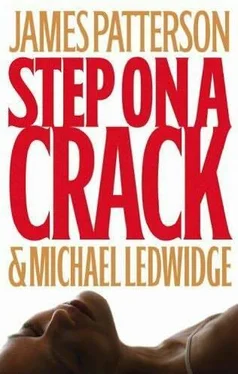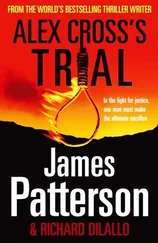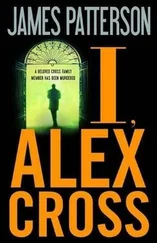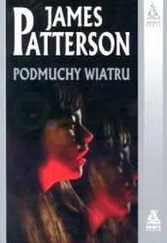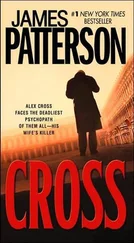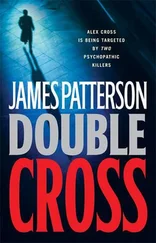“Okay, ladies,” Jack said to his men with a wink. “Let’s move ’ em out. We ’re almost home. We won the Super Bowl.”
They had to keep themselves from sprinting as they climbed the short fence and came out alongside the main building, waiting at a light to cross.
Jack swallowed hard, his blood going as cold as the water they’d just climbed out of as a police car, with its siren screaming, approached from the south. He started breathing again when it blew right past them, speeding uptown. No doubt heading back to 57th, where they’d started their little Dukes of Hazzard stunt.
It was thirty-five minutes later when they were in a van picking up the rest of the hijackers by the dock of an abandoned bottling plant in Long Island City. Little John grinned triumphantly as he and the other five men threw themselves in through the sliding door to back slaps and high fives.
“What the hell took you so long?” the big man said, accepting an ice-cold Heineken that Jack handed him from a cooler. “Where’s Jose?”
“He lost it as we were coming across Eleventh Avenue,” Jack said, punching a hand into his fist. “Jose’s gone.”
Little John looked down at the van floor, ruminating. “What about his prints?” he said after a moment.
Jack smiled.
“Remember we told him about the need to not leave any evidence?” he said. “Well, the crazy mother said he wasn’t taking any chances. So he spent the last month and a half burning off his fingertips with a Zippo.”
“To Jose!” Little John said, lifting his beer bottle, happy again. “That gato had some balls.”
“And Fontaine,” Jack said, remembering his friend who’d been downed in the firefight in the crypt. He glanced at the man’s hands in the Ziploc, sitting on ice beside the beers. Kind of looked like chicken wings.
“What do we do now?” Little John said.
“I don’t know about you, but after three days wearing the same drawers and that little dip in one of the most polluted rivers on Earth,” Jack said, “I could go for a hot shower.”
“And some hot you-know-what, too,” one of his compadres called to howls as the van slipped onto the BQE.
“I meant after that,” Little John said.
“We stick with the plan. Two, three months of waiting to make things look good, and then it’s a one-way first-class trip to Costa Rica.”
So they’d really done it, Jack thought, grinning at the sound of the Arriba! Arriba! Ándale ! calls in the van. It was hard to believe. They’d held the world off. The next part was a joke. Incredibly easy. They just had to sit back and wait, and not spend their millions.
I HAD TO BORROW some clothes, so I was decked out in a spiffy green sanitation worker’s uniform when I arrived back at the car dealership on Eleventh.
It looked as if two medical examiners in white Tyvek suits were playing a game of tug-of-war as they attempted to remove a brown-robed hijacker from the handlebars of a motorcycle. Only after an ESU cop arrived with some bolt cutters did they finally manage to pull the motorcycle out of the dead man’s chest.
Over by a pulverized soda machine, one of my favorite rock singers of all time, Charlie Conlan, and Giants quarterback Todd Snow were being interviewed by detectives from the Major Crimes Unit. They didn’t look like they were much in the mood for autographs. From the look of the shredded car, I was surprised the only injury I saw was a black eye and fat lip on the pissed-off-looking pop star, Mercedes, who stormed by with an EMS medic, and not a word of thanks to anybody.
I knelt beside what was left of the hijacker as the assistant MEs laid him onto the showroom carpet. I borrowed a pair of rubber gloves and slowly pulled off his mask. The back of my fist flew against my forehead when I uncovered a second black rubber mask beneath it.
A skin-diving mask.
That’s how they did it! How they had gotten away. They’d used scuba-diving equipment to escape under the water.
I borrowed a phone and told Will Matthews about my discovery. After some choice expletives, he called in more harbor units from Jersey and the Coast Guard.
After I hung up, I pulled off the hijacker’s rubber mask. The deceased was a Hispanic man in his late thirties, early forties. Nothing in his pockets. A nine-millimeter Beretta pistol in an underarm holster, but the serial number had been filed away. I groaned when I looked at his hands and saw his fingerprints were gone, too. I’d seen similar prints on the hands of crackheads, ridges melted down to a nub from holding too many hot pipes.
No! I thought, these bastards weren’t going to disappear without leaving me at least one lead. I found Lonnie Jacob, a crime scene investigator I’d worked with several times. I showed him the jacker’s hands.
“Think you can get anything?” I said.
“Maybe a partial,” Lonnie said skeptically. “I’ll have to work on him back at the morgue. I really doubt we’ll get anything, though. This dude did not want to be identified.”
“What’s up, Mike?” Commander Will Matthews said moments later as he came across the broken glass toward me. “You transferring to Sanitation on me?”
“Thought I’d put out some feelers after this home run,” I said.
“We did all we could, Mike,” Will Matthews said, staring at the carnage all around us. “That’s the truth, and it’s the story I’m sticking to. I advise you to repeat after me during the impending shit storm.”
“Will do,” I said. “ We did all we could . Happens to be the truth.”
“Now get out of here and see your family. My driver’s outside waiting for you,” Will Matthews said. “That’s an order.”
A cold wind was whipping down 57th when I stepped outside. I had hardly noticed it before, but this Christmas had turned out to be one of those stainless-steel-colored December days when you have the feeling winter will never end. As I got into the back of the cruiser and my thoughts shifted toward my wife, I decided I didn’t want it to.
If Maeve wasn’t going to see another spring, why the hell should anybody else?
SOME SAY NOTHING compares to Christmas in New York, but I’d never seen the city look grimmer. After I got home and changed, I drove my brood to the hospital. I couldn’t see the wreaths and lights anymore, only the endless gray corridors of blank windows, the grimy concrete, the steam rising from the broken streets. Some Irish writer once referred to Manhattan as a “cathedral,” but as I stopped our van in front of the hospital, it looked more like a sad construction site to me, cluttered and cold and pitiless.
I had to hold myself up against the van’s door frame in order not to fall over from exhaustion as Mary Catherine fed my kids out in their good clothes, clutching their brightly wrapped presents.
Even the stern nurses, stuck there on Christmas, seemed teary-eyed as our cosmically sad procession passed through the lobby to good ol’ Five.
“Wait a second,” I said, patting my pockets as we approached Maeve’s corridor. “ The pageant tape . I forgot to…”
“It’s right here, Mike,” Mary Catherine said, handing me the small plastic case.
I was about to thank her yet again for being such a lifesaver. Au pair, I thought. Was that Gaelic for fairy godmother? She would have had a cheerier Christmas in Afghanistan than here with my crew, but she’d jumped right in up to her neck.
“Give my love to Maeve,” the amazing young woman said quietly. “I’ll be in the lounge if you need me. Go.”
I could see Seamus kneeling beside Maeve in her wheelchair when we turned into her corridor.
Читать дальше
